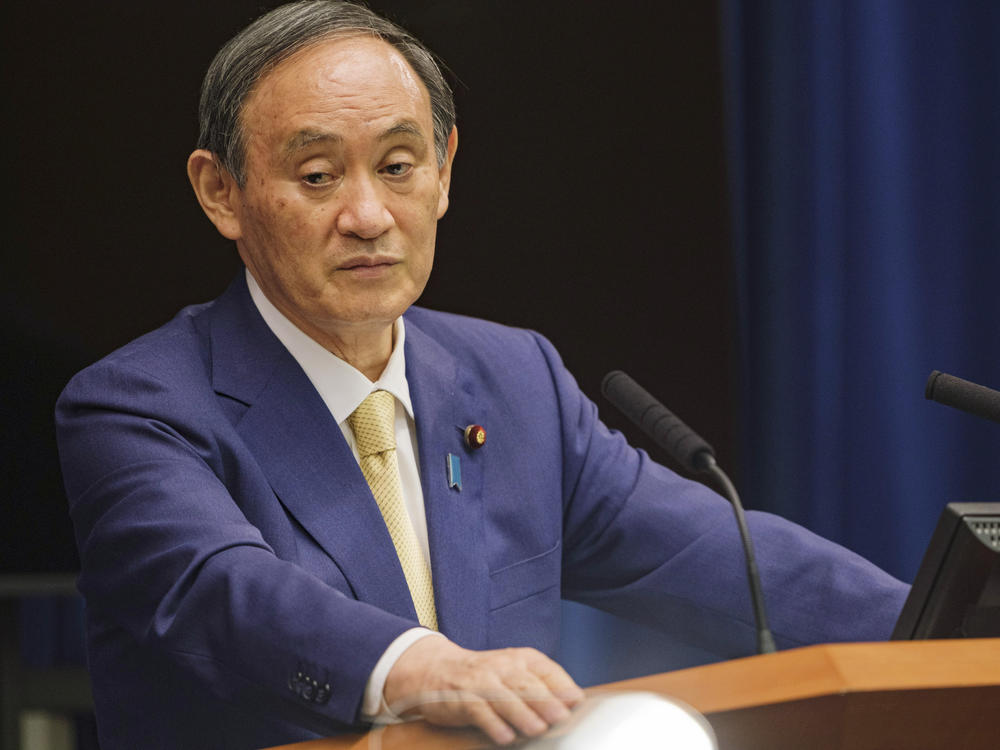Section Branding
Header Content
Tokyo's Coronavirus Cases Are Soaring, But Japan's PM Says The Games Are Not To Blame
Primary Content
Even as new coronavirus cases surge in Tokyo to rates not seen since the pandemic began, Japan's prime minister says the Olympics are not causing the spike.
Officials on Thursday confirmed 3,865 new cases in Japan's capital, the highest daily tally reported, just as the Tokyo Olympics near their halfway point.
It's the third day in a row the city has set a record for new cases, which started spiking shortly after people associated with the Olympics began arriving in Japan. Before Olympic personnel began entering Tokyo, the capital's daily cases were fewer than 700.
But on the same day Japan's total daily cases topped 10,000 for the first time, Prime Minister Yoshihide Suga said there's no link between the Games and rising coronavirus infections.
"Since we have imposed virus-curbing measures, such as cutting the flow of people (in public) and stricter border controls to prevent the spread of the virus by foreign visitors, I think there is none," he said.
Suga again urged people to watch the Olympics from home rather than in groups in public to reduce the risk of infection. The Games are not allowing in-person spectators.
Suga's statement comes as Japan extends its coronavirus state of emergency to four more prefectures beyond the capital: Chiba, Kanagawa, Saitama and Osaka. Chiba, Kanagawa and Saitama, which neighbor Tokyo, had requested stricter measures be imposed as infections rapidly rise in their regions.
Within the Olympic bubble, the Games have also reported one of their highest daily increases in cases since July 1. Twenty-four people with connections to the Games have tested positive for the coronavirus since Wednesday, including three athletes. So far, 193 people connected to the Olympics, including 20 athletes, have tested positive.
Toho University professor Kazuhiro Tateda, a member of the Japanese government's coronavirus panel, told NHK World-Japan that the state of emergency in Tokyo is not working. The state of emergency has been in place since July 12.
"It's so far had little or no impact," he said. "The rapid surge in cases can be attributed to an increased movement of people due to a four-day holiday weekend, the Olympics and Paralympics, and summer vacations. We must keep in mind that the number will increase. It is time to introduce tighter restrictions."
Josie Fischels is an intern on NPR's News Desk.
Copyright 2021 NPR. To see more, visit https://www.npr.org.

